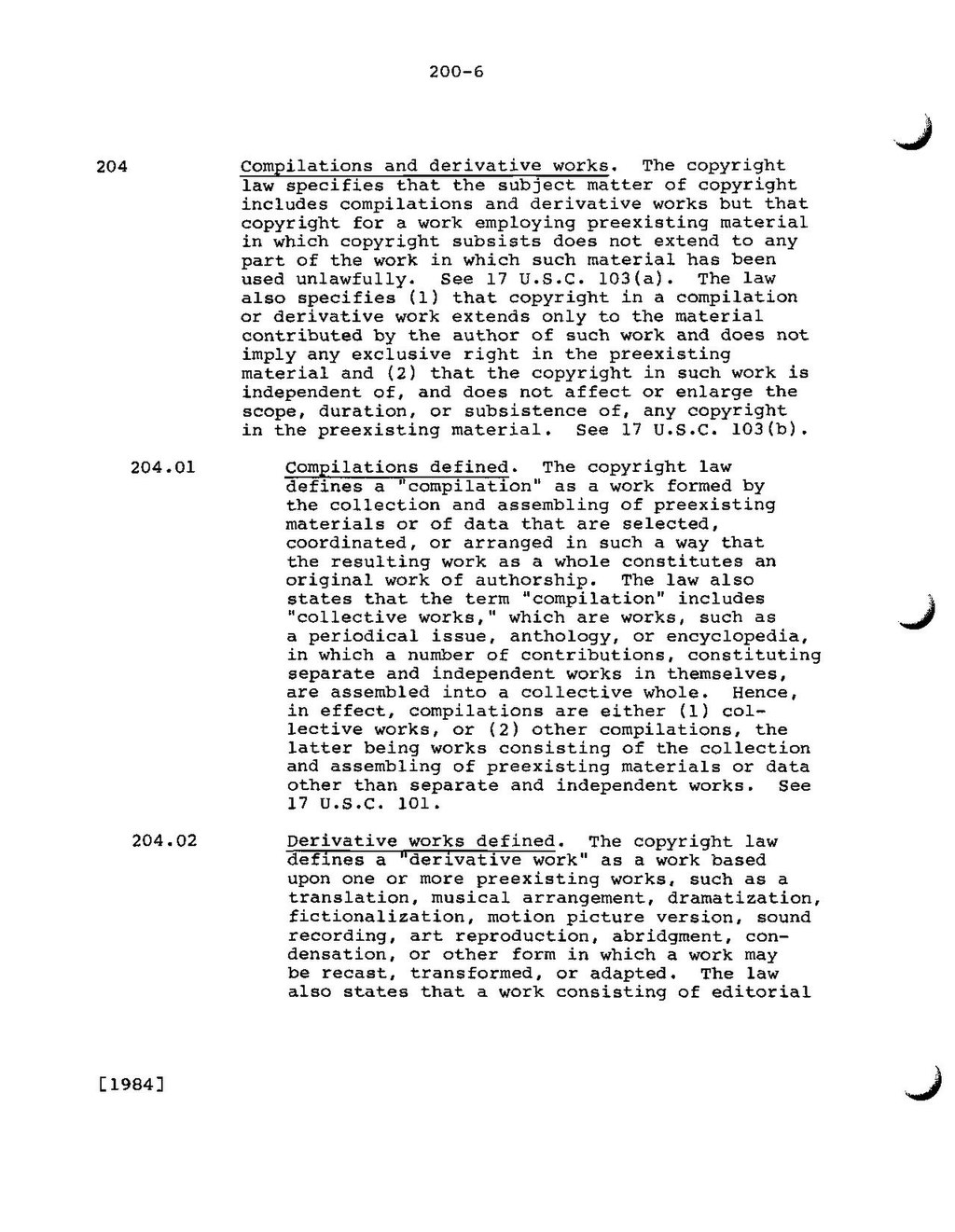200-6
204
Compilations and derivative works. The copyright law specifies that the subject matter of copyright includes compilations and derivative works but that copyright for a work employing preexisting material in which copyright subsists does not extend to any part of the work in which such material has been used unlawfully. See 17 U.S.C. 103(a). The law also specifies (1) that copyright in a compilation or derivative work extends only to the material contributed by the author of such work and does not imply any exclusive right in the preexisting material and (2) that the copyright in such work is independent of, and does not affect or enlarge the scope, duration, or subsistence of, any copyright in the preexisting material. See 17 U.S.C. 103(b).
204.01
Compilations defined. The copyright law defines a "compilation" as a work formed by the collection and assembling of preexisting materials or of data that are selected, coordinated, or arranged in such a way that the resulting work as a whole constitutes an original work of authorship. The law also states that the term "compilation" includes "collective works," which are works, such as a periodical issue, anthology, or encyclopedia, in which a number of contributions, constituting separate and independent works in themselves, are assembled into a collective whole. Hence, in effect, compilations are either (1) collective works, or (2) other compilations, the latter being works consisting of the collection and assembling of preexisting materials or data other than separate and independent works. See 17 U.S.C. 101.
204.02
Derivative works defined. The copyright law defines a "derivative work" as a work based upon one or more preexisting works, such as a translation, musical arrangement, dramatization, fictionalization, motion picture version, sound recording, art reproduction, abridgment, condensation, or other form in which a work may be recast, transformed, or adapted. The law also states that a work consisting of editorial
[1984]
